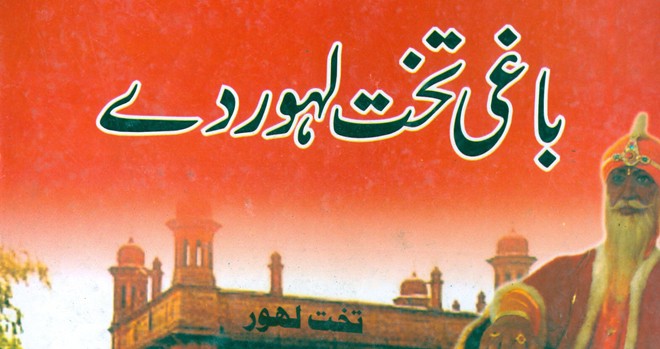
A major portion of contemporary Seraiki poetry is resistance poetry which has stayed largely ignored

It was June 1, 1818 and the war between Muzaffar Khan and Ranjeet Singh had begun and both the armies were fighting in Multan. Muzaffar Khan was fighting to save Multan while Sikhs wanted to occupy the most prosperous and fertile land of this historic city. There was a lot of bloodshed and two sons and one daughter of Muzaffar Khan had died on this day. The next day the Sikh commander ordered Khan to surrender but he continued fighting till the time he was martyred.
Multan was occupied by Sikh commanders and they started searching for the dead body of Khan. "We have to present the prisoners before the Lahore throne," they said when someone asked them about their panic.
This was the first time in history that the phrase ‘Prisoners of Lahore throne’ was used (Qaidi takht Lahore de). While they searched for the head, they scattered dead bodies, imprisoned women, snatched ornaments from them and humiliated them. Ranjeet Singh was waiting impatiently in Lahore when prisoners were presented before him. A victorious smile appeared on his face and when he looked at the prisoners from Lahore throne which was at quite a height from the ground level.
This scene was described by a Seraiki poet and nationalist Sain Ashiq Buzdar. He says:
‘’Sade munh te jandre jabar de
Sade hath Kariaan wich band
Assan qaidi takht Lahore de
Assan qaidi takht Lahore de,
The verses are from his book Qaidi Takht Lahore de. Buzdar’s poems invoke the Seraiki youth to raise voice against the occupation of their resources by the few. He says once the men of this region used to wear ornaments but today even our females are deprived of it. Indus is flowing, its water is like milk and its land is fertile.
In another verse he says
"Ainde munh te paer Punjab de
Ainde Kand te chabuk chehke de
Assan qaidi takht Lahore de
Assan qaidi takht Lahore de’’
(The feet of Punjab are on its (Seraikistan’s) mouth. Its back is continuously being beaten with lashes. We are prisoners of Lahore throne…We are prisoners of Lahore throne).
The poor state of affairs is also highlighted in verses by popular Seraiki poet Shakir Shuja Abadi. He says while addressing God:
"Bahattar Hoor de badle Guzara hik te kar ghinsoon
Ikhattar Hoor de badle Saakoon Ruj ke Roti De De"
There are countless such examples but these few are mentioned here to show that anti-establishment sentiment is getting stronger in Seraikistan and poetry is the best way to express feelings. But unfortunately the rulers deny it and the media cannot highlight it as it is controlled by Upper Punjab. All political parties promised new provinces in their manifestos but forgot them after elections.
Over time, the situation has not improved rather it has gone from bad to worse. The new generation, which has grown with a sense of being robbed of its share in national resources and denied basic necessities of life, is expressing itself forcefully. Their hatred against the "usurpers" has grown and found a vent in the form of poetry.
The phrase of a submissive qaidi has given way to that of a headstrong baghi who may challenge the status quo any time. This can be seen in the poetry of Sahir Rang Puri. At age 28 he has written a book Baghi takht Lahore de. He could have opted for romantic poetry and made fortunes but he did not as he was committed to his soil and wanted to mobilise the Seraikis so that they could demand their rights denied for decades.
Riaz Asmat is another poet who has the art of telling the whole story in few lines. He has very beautifully explained why Seraikis eat fast and swallow big morsels of food. He says
‘’Mein sochee mein
Men jaldi roti kiyun khanda
Men wadday luqme kiyun peenda
Men soche taan sudh pai
Kahen kaal de mausam jaya hum
Yaainee mumkin thi sakde
Kaheen ghasib da hamsaya hum’’
The thought behind these verses is that the poet (a typical Seraiki) eats fast as he has lived in famine and has been hungry for ages. He fears the famine may return so he fills up his stomach. Or he is the neighbour of a usurper who can snatch his food if he eats it slowly.
Professor Shaukat Mughal, an authority on Seraiki language, says that 96 per cent of all poetry generated in the Seraiki belt is resistance poetry and only four per cent is romantic. There is no room for a poet who is not resistant. "People conduct mushairas at their own expense and bring popular poets to keep the movement alive and have catharsis," he says.